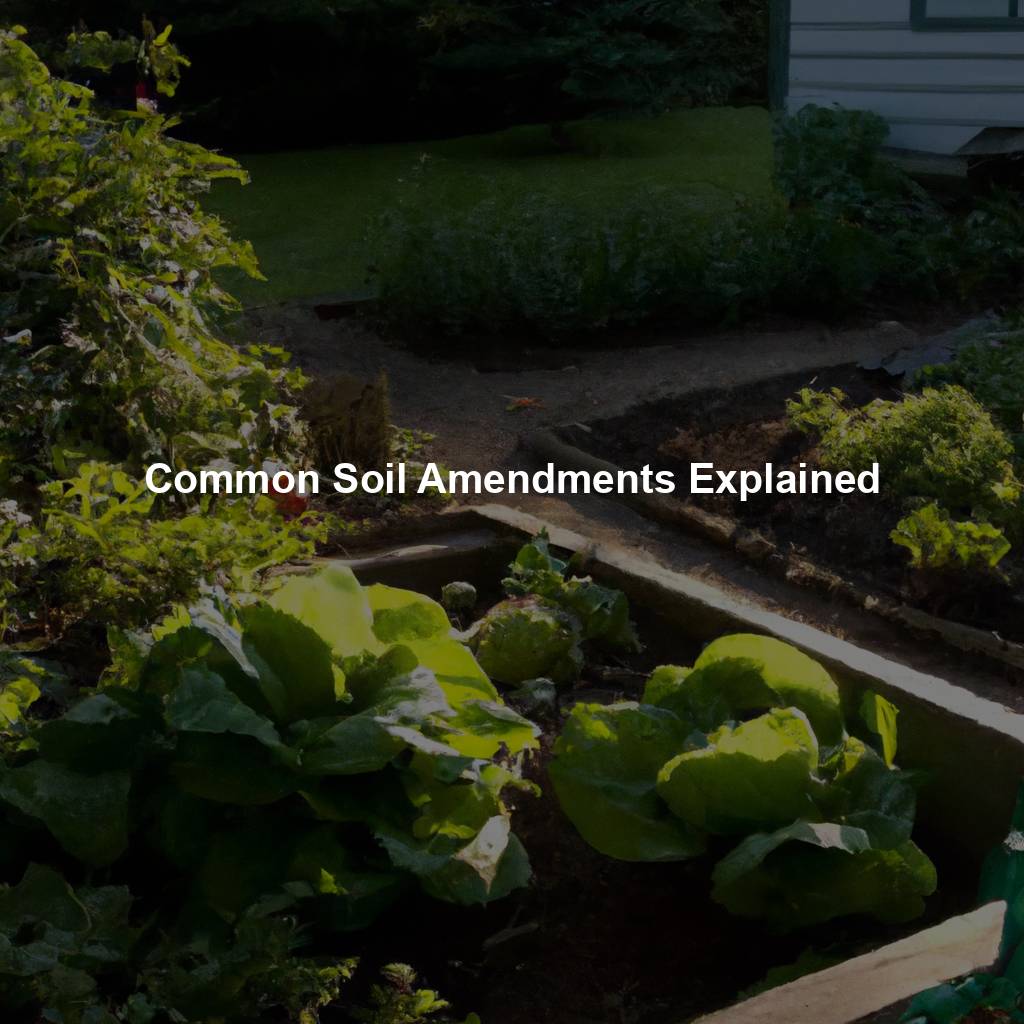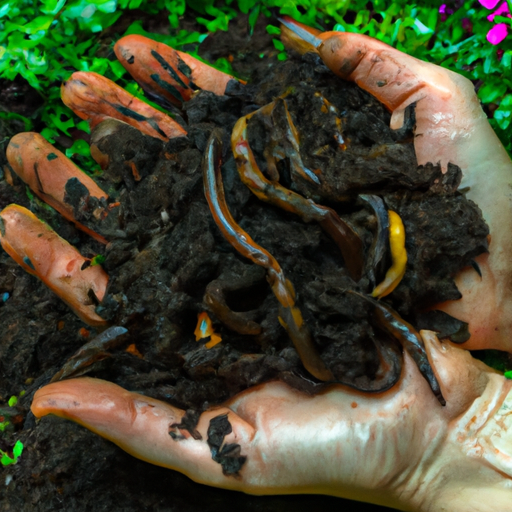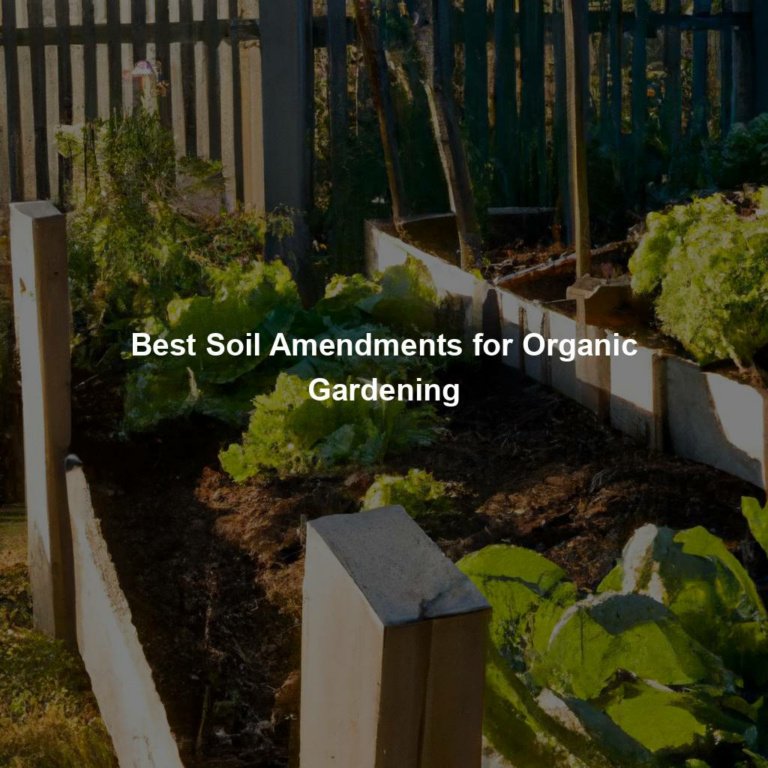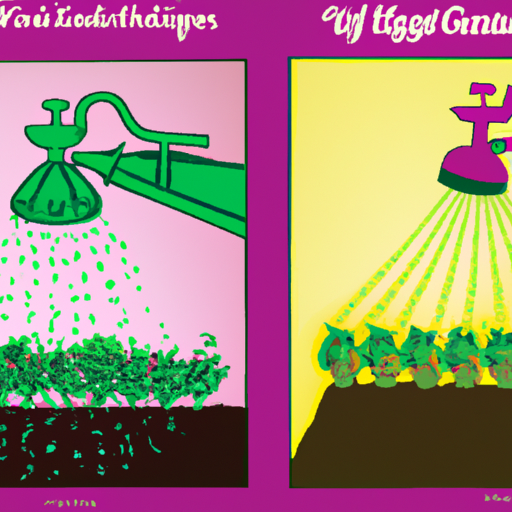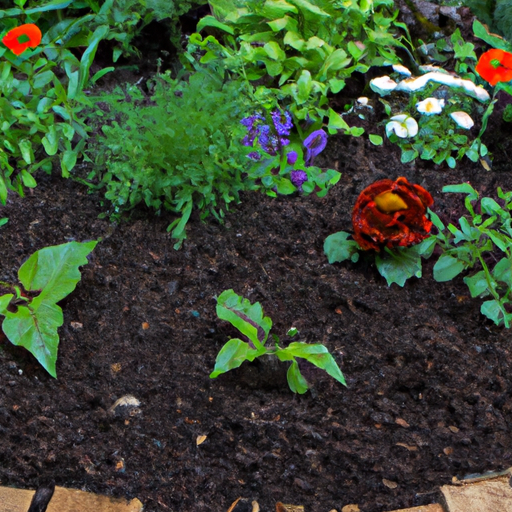Welcome to the world of gardening! As a Master Gardener, I understand the importance of soil amendments in ensuring successful plant growth.
Soil amendments are materials added to your garden beds or containers that enhance soil fertility and structure by improving its nutrient content, water holding capacity, drainage, pH levels, and texture.
In this article, we will explore some common soil amendments used by gardeners worldwide. We’ll discuss their benefits for plants as well as how they affect soil health.
By understanding these different types of soil amendments and when to use them, you can create an optimal environment for your plants’ growth and yield a bountiful harvest.
So let’s get started and dive into the wonderful world of soil amendments!
Compost: The Ultimate Soil Amendment
Gardeners, we all know that soil is the foundation of a healthy garden. And what better way to improve your soil than by using compost?
Composting benefits not only your plants but also the environment by reducing waste and limiting the need for chemical fertilizers. As a Master Gardener, I can attest that composting techniques are simple and easy to learn.
Essentially, you let nature take its course as organic matter breaks down into nutrient-rich humus. With just a few basic ingredients like leaves, grass clippings, and food scraps, you can create a thriving ecosystem in your own backyard.
So why wait? Start composting today and watch your garden flourish!
Vermicomposting: A Sustainable Option For Your Garden
Composting is a great way to amend your soil, but have you ever considered vermicomposting? This sustainable option for your garden has many benefits that make it an attractive alternative.
First and foremost, vermicompost contains high levels of nutrients essential for plant growth, such as nitrogen and phosphorus. Additionally, this type of compost improves soil structure and water-holding capacity, making it easier for roots to penetrate the soil.
If you’re interested in setting up a vermicomposting bin at home, there are a few things to keep in mind. Firstly, choose a location that is cool and dark – worms prefer temperatures between 55-77°F (13-25°C).
Secondly, select the right kind of worm: red wigglers are the best choice because they eat organic matter quickly and efficiently.
Finally, provide them with bedding material like shredded newspaper or cardboard to ensure they feel comfortable in their new home.
Incorporating vermicomposting into your gardening routine can have numerous benefits – not only does it produce nutrient-rich compost for your plants, but it also reduces waste going to landfill while promoting sustainability.
By following these simple steps, anyone can set up their own vermicomposting system at home and enjoy all the rewards that come along with it!
Organic Matter: The Building Block Of Healthy Soil
What is the key to healthy soil? The answer lies in organic matter, which serves as a building block for achieving optimal plant growth. Organic matter is essential because it helps retain moisture, improves drainage and porosity, and provides vital nutrients for plants. With that said, gardeners must understand the importance of organic matter and learn how to add it to their soil effectively. Fortunately, there are several sources of organic matter available for improving soil quality.
Check out this table below to discover some common sources of organic matter:
| Source | Description |
| —— | ———– |
| Compost | Decomposed plant material that can be purchased or made at home by mixing yard waste with kitchen scraps. |
| Manure | Animal feces that have been decomposed into compost-like material. Different types of animal manure provide varying levels of nitrogen and other nutrients. |
| Cover Crops | Plants grown specifically to benefit soil health by adding biomass above ground while also increasing root mass below ground. Common cover crops include clover, rye grass, and winter wheat.|
| Mulch | A layer of organic or inorganic material placed on top of the soil surface to reduce evaporation rates, prevent erosion, suppress weed growth and improve nutrient cycling. Examples include wood chips, leaves or straw.|
| Worm Castings | Also known as vermicomposting, worm castings are produced when worms consume food scraps and produce nutrient-rich excrement used as an excellent source of slow-release fertilizer|
By incorporating these various sources of organic matter into your gardening practices, you will ultimately achieve healthier soils with better water retention and increased fertility levels. Remember that different plants require different amounts of nutrients; therefore, knowing what type(s) of organic matter works best for each crop is crucial for successful cultivation without relying on chemical fertilizers constantly.
Mineral Amendments: Balancing Soil Nutrients
Master gardeners know that mineral amendments are essential for balancing soil nutrients.
Before applying any amendments, it’s important to test the soil to determine which minerals are lacking and need to be added.
A proper fertilizer application can help balance out the nutrients in your soil, but sometimes specific minerals like sulfur or magnesium may need an extra boost.
Adding mineral amendments such as gypsum or Epsom salt can help provide these necessary elements to your plants’ roots, resulting in healthier growth and better yields.
Remember that over-applying certain minerals can also cause imbalances and harm your plants, so always follow recommended guidelines and conduct regular soil testing to ensure optimal nutrient levels for your garden.
Ph Adjustments: Finding The Right Balance For Your Plants
Now that we’ve discussed mineral amendments and how they can help balance soil nutrients, it’s time to focus on another important aspect of soil health: pH levels.
Soil testing is a crucial step in determining the acidity or alkalinity of your soil. If you find that your soil is too acidic, it can be detrimental to plant growth as essential nutrients become unavailable to them.
However, don’t fret because there are ways to adjust the pH level of your soil using organic methods such as adding lime or wood ash. By finding the right balance for your plants’ specific needs, you’ll ensure optimal growing conditions for healthy and vigorous growth.
Remember, taking care of your soil will ultimately lead to healthier plants and a bountiful harvest come harvest season!
Frequently Asked Questions
What Is The Difference Between Organic And Inorganic Soil Amendments?
When it comes to soil amendments, there are two main categories: organic and inorganic.
Organic amendments come from natural sources such as compost, manure, and plant matter. They provide a variety of benefits including improving soil structure, increasing nutrient levels, promoting beneficial microbial activity, and aiding in moisture retention.
In contrast, inorganic amendments are made from synthetic materials like fertilizers and lime. While they can quickly add nutrients to the soil, they do not improve soil structure or promote long-term health like organic amendments do.
However, one advantage of using inorganic amendments is that their nutrient content is more easily controlled and measured than with organic alternatives.
Ultimately, the choice between organic and inorganic amendments depends on individual gardening goals and preferences.
Can Too Much Compost Or Organic Matter Be Harmful To Plants?
Too much compost or organic matter can be harmful to plants if not applied properly. In fact, over-application of these amendments can lead to nutrient imbalances and waterlogging in the soil, which can stunt plant growth and even kill them.
However, when used correctly, compost and other organic matter provide numerous benefits such as improving soil structure, increasing nutrient availability, and promoting beneficial microbial activity.
Proper application techniques include mixing amendments thoroughly into the soil before planting and avoiding excessive use. As a Master Gardener, it’s important to remember that moderation is key when it comes to using any type of soil amendment.
How Do I Know If My Soil Needs A Ph Adjustment?
Wondering if your soil needs a pH adjustment? The best way to know for sure is through soil testing.
You can purchase a pH meter or take a sample of your soil to a local garden center or university extension office for analysis.
Once you have determined the current pH level, you can make adjustments by adding amendments such as lime to raise the pH or sulfur to lower it.
It’s important not to guess when it comes to adjusting pH levels in your soil, so be sure to test before making any changes.
Are There Any Natural Alternatives To Mineral Amendments?
Are you looking for natural alternatives to mineral soil amendments? Look no further than compost tea! This organic solution is made by steeping compost in water and can provide vital nutrients to your plants.
Additionally, consider crop rotation as a way to naturally improve soil health. By alternating the types of crops grown in an area, you can prevent nutrient depletion and reduce the buildup of pests and diseases.
As a Master Gardener, I always recommend exploring these natural options before turning to chemical amendments.
How Often Should Soil Amendments Be Applied In A Garden?
Frequency is key when it comes to applying soil amendments in a garden. Knowing how often to apply them can make all the difference in your plant’s growth and yield.
The benefits of regular application include improved nutrient availability, increased water retention, and better soil structure.
As a Master Gardener, I recommend applying amendments at least once every season or as needed based on your soil test results. Keep in mind that over-application can lead to imbalances and toxicity, so always follow recommended rates and monitor your plants’ progress for optimal results.
Conclusion
Well my dear fellow plant enthusiasts, it seems we have reached the end of our journey through the world of soil amendments. But fear not, for I shall leave you with a few parting words that will surely stick with you as you tend to your beloved gardens.
Firstly, let us never forget the importance of balance in all things – including our soil amendments. Too much organic matter can lead to nitrogen depletion and other nasty side effects, while an excess of mineral amendments can throw off the pH balance and harm delicate root systems. So always remember to measure twice and amend once!
And secondly, let us embrace the wonders of nature itself when it comes to finding alternatives to traditional mineral amendments. From seaweed extracts to bone meal, there are plenty of natural options out there that can work just as well (if not better) than their chemical counterparts.
So go forth and experiment, my gardening friends! And may your soils be forever rich and bountiful.
